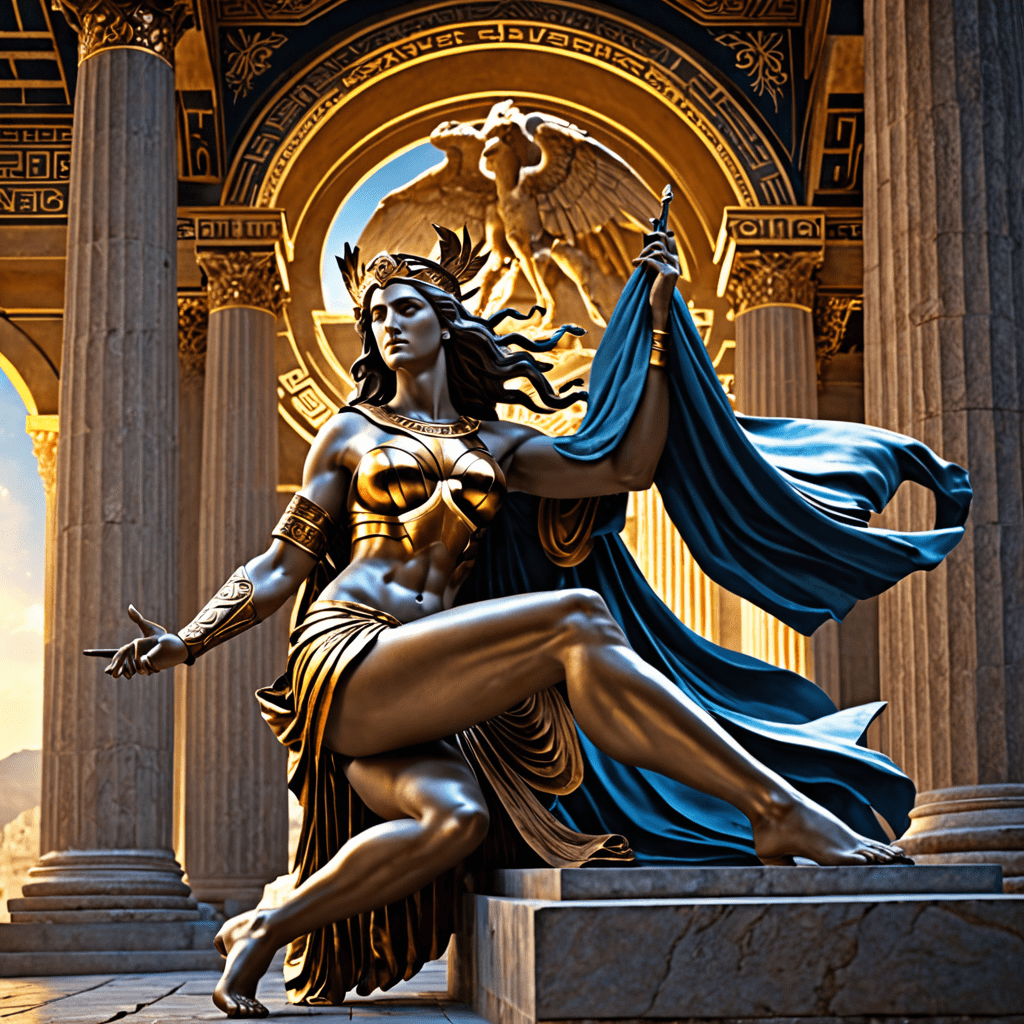The Secret of the Oracle: Journeys to Seek Prophecy
I. Introduction to Oracles and Prophecy
An oracle, in its essence, is a conduit for divine knowledge and foresight, often serving as a bridge between the mortal realm and the divine. Throughout history, oracles have played a pivotal role in guiding individuals and societies with their prophetic insights.
Oracles have held historical significance across various cultures, from the esteemed Oracle of Delphi in ancient Greece to the Sibylline Books of Rome. Each culture has revered these prophetic figures, believing them to possess the ability to foresee the future and provide guidance.
The purpose of seeking prophecy is deeply rooted in humanity’s quest for understanding and direction. Societies have turned to oracles during times of uncertainty, seeking answers to vital questions concerning governance, war, and personal dilemmas. The impact of these prophecies can be profound, shaping decisions and altering the course of history.
II. The Origins of Oracle Practices
Oracle practices trace back to ancient civilizations, each developing their unique traditions and methodologies for divination:
- Greece: The Oracle of Delphi – Renowned for its Pythia, the priestess who delivered cryptic messages from the god Apollo.
- Rome: The Sibylline Books – A collection of prophetic writings that were consulted during times of crisis.
- Egypt: The Oracle of Amun – Located at the Siwa Oasis, this oracle was sought for its wisdom and guidance.
Spiritual and religious contexts play a crucial role in oracular practices, as many ancient societies believed that oracles were endowed with divine inspiration. Over time, these practices have evolved, adapting to changing beliefs and societal needs.
III. The Role of the Oracle in Ancient Societies
Oracles held significant influence in various aspects of ancient life:
- Decision-making and governance: Leaders often consulted oracles before making crucial political decisions.
- War and conflict resolution: Oracles were sought for guidance on whether to engage in battles or how to navigate conflicts.
- Agriculture and seasonal predictions: Farmers relied on oracles to determine the best times for planting and harvesting.
IV. The Journey to the Oracle: Rituals and Preparations
The journey to consult an oracle typically involved both physical and spiritual preparations:
- Physical journeys: Seekers traveled long distances to reach sacred sites, often facing arduous conditions.
- Rituals of purification: These included bathing, fasting, and offering sacrifices to appease the gods.
- Psychological mindset: Seekers often entered a trance or meditative state to enhance their receptivity to divine messages.
V. The Prophetic Process: How Oracles Deliver Messages
Oracles employed various methods of divination to communicate messages from the divine:
- Methods of divination: These included interpreting signs, visions, and dreams, as well as utilizing objects like lots or bones.
- Interpretation of prophecies: The messages received were often symbolic and required skilled interpretation.
- The role of the oracle’s priest or priestess: They acted as intermediaries, conveying the divine messages to the seekers.
VI. Famous Prophecies and Their Impact
Throughout history, notable prophecies have emerged from various cultures, influencing events and shaping societies:
- Greek Prophecies: The Oracle of Delphi famously warned King Croesus that he would destroy a great empire, which led to his downfall.
- Roman Divination: The Sibylline Books were consulted during crises, including wars and plagues, guiding Roman leaders.
Case studies illustrate the profound impact of these prophecies, as they often dictated the actions of powerful figures, cementing the oracles’ legacies in contemporary society.
VII. The Skepticism and Criticism of Oracles
Despite their historical significance, oracles have faced skepticism and criticism:
- Rationalist perspectives: Many view oracles as products of superstition, lacking empirical evidence.
- Psychological explanations: Belief in oracles may stem from cognitive biases and the human desire for control over the uncertain.
- Decline of practices: The rise of rational thought and scientific inquiry has diminished the role of oracles in modern society.
VIII. The Modern Interpretation of Oracular Wisdom
In recent years, oracular wisdom has seen a resurgence, particularly within New Age and contemporary spiritual movements:
- Interest in divination: Practices such as tarot reading, astrology, and rune casting are gaining popularity.
- Technology’s role: Online platforms and apps now facilitate access to oracular practices, making them more accessible.
IX. Personal Journeys: Contemporary Seekers of Prophecy
Modern individuals continue to seek out oracles for guidance, often embarking on transformative journeys:
- Profiles: Many contemporary seekers share their experiences, revealing personal stories of growth and insight.
- Transformative journeys: For some, the act of seeking prophecy becomes a profound spiritual quest.
In an ever-changing world, the quest for meaning drives individuals to explore these ancient practices anew.
X. Conclusion: The Enduring Allure of the Oracle
Despite the evolution of society, the allure of oracles remains relevant. In a world filled with uncertainty and complexity, the universal human desire for guidance and foresight continues to thrive. As we navigate our lives, the wisdom of the oracles serves as a reminder of our intrinsic need for connection to the divine and the mysteries of existence.



